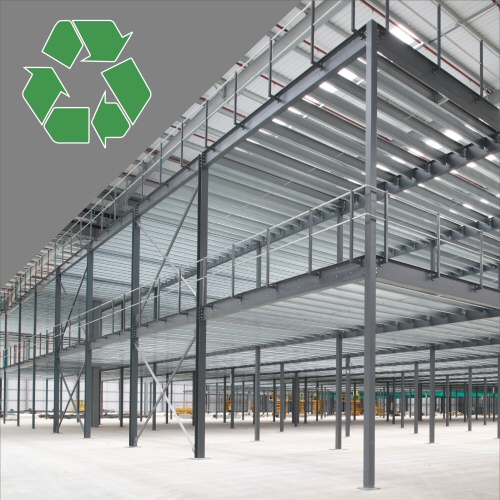Sustainability is an important consideration for many of MiTek's customers and something that we take seriously in our design process, project management and R&D programme. For our on-site work, we employ the services of specialist waste contactors to remove waste and deal with it responsibly, recycling as much of it as possible. In order to prove our commitment to sustainability, we are currently working towards ISO 14001 certified for the management of our environmental responsibilities. There are two aspects to our performance in terms of sustainability – the materials and designs we use for construction of our mezzanine floors and the nature of our supply chain.

Another important factor to consider in terms of sustainability is the distance between the production plant for your mezzanine floor and the location in which it will be installed. At MiTek, we use a network of reliable local partners to manufacture and install our mezzanine solutions. In line with our philosophy of Global Partnerships, Local Solutions, this commitment to local sourcing in our procurement strategy minimizes the carbon footprint associated with your mezzanine project. Of course, it also ensures you benefit from additional local market expertise in the delivery of your mezzanine floor. As you would expect, we continue to assess and monitor our supply chain partners to ensure they are committed to using responsibly sourced materials and sustainable processes, and to working with us to improve our sustainability performance, year after year.
Optimizing space utilization in your existing building is more environmentally friendly than constructing a new one, so a mezzanine floor is an intrinsically sustainable option. In addition, we construct our mezzanines using structural steel, which enhances sustainability through the flexibility it offers – as a semi-permanent structure, a steel mezzanine is relatively easy to modify, extend or even relocate if necessary. Compared to concrete floors, steel mezzanines have a long life and – being assembled from steel components and wooden decking – offer a very high degree of recyclability.
Steel has further sustainable credentials: with steel components being precision-engineered, there is very little wastage, and – with a high strength to weight ratio – it is relatively lightweight and therefore economical to transport. Another factor to think about is how the materials specified for your floor affect its ongoing energy use. For example, you can reduce energy consumption by using materials that increase light reflection.
The design of your floor can also affect its ongoing energy use. For example, you can reduce energy consumption by specifying materials that increase light reflection.
Request a quote
SendClose